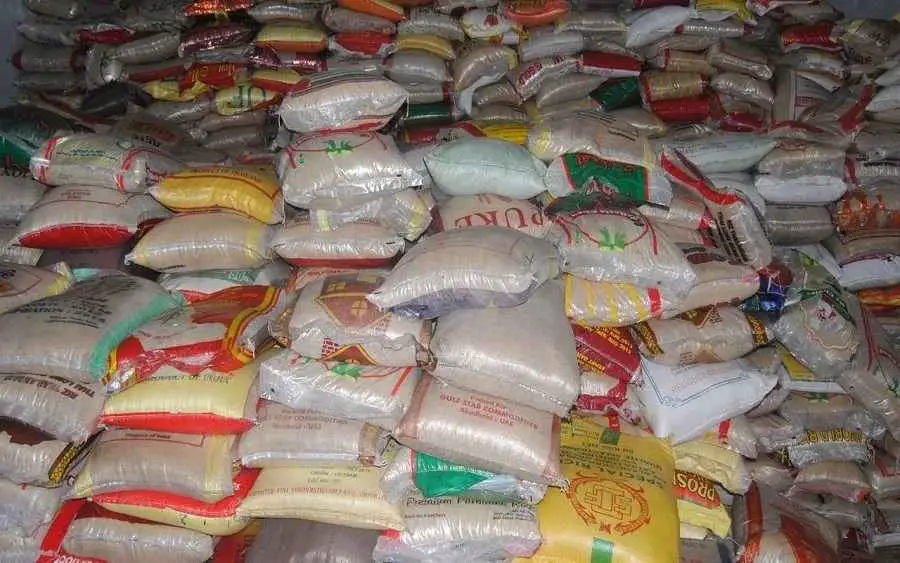
On Wednesday in Abuja, the Senate Committee on Agriculture said that around two million metric tons of rice are currently imported or smuggled into the country.
According to the committee, the production of milled rice in Nigeria is expected to reach five million metric tons in 2021.
Muhammad Enagi, the Committee's Vice Chairman, revealed this at a meeting with a multi-stakeholder group on the rice council's advocacy bill promotion.
The Global Environment Facility (GEF) organized the interactive conference in partnership with the Women Farmers Advancement Network (WOFAN), among others.
According to Mr. Enagi, rice production in Nigeria increased from 3.7 million metric tons in 2017 to 5.0 million metric tons in 2021.
"Despite this, Nigeria consumes 6.7 million metric tons of rice yearly, resulting in a shortfall of roughly two million metric tons, which is either imported or smuggled into the country illegally," he added.
Mr. Enagi added that he supported a measure to create the Nigerian National Rice Development Council, which would give advice on rice research, comprehensive rice sector development, and the organization of rice stakeholders to boost local output.
According to him, the bill aims to provide a focal point as well as a comprehensive national operational and administrative framework for the whole rice value chain.
"Nigeria should consider establishing a National Rice Development Council and a comprehensive national rice development strategy to steer the country toward self-sufficiency and export," he says.
The National Rice Development Council, he noted, will change the actions of rice farmers, processors, millers, researchers, marketers, and other essential players along the rice value chain.
"With our natural competitive edge in rice production, Nigeria should establish a National Rice Development Council and a comprehensive national rice development plan that would lead us not only to rice self-sufficiency, but also to export rice."
"The Nigerian rice sector exists in the abstract because, in the lack of a properly structured rallying point, there appears to be no kind of coordination." Among them are the Nigerian Paddy Rice Dealers Association (PRIDAN) and the Nigerian Rice Farmers Association (RIMAN).
Salamatu Garba, WOFAN's Executive Director, had previously raised worry over the increasing pace of food imports into the nation.
Imports of agricultural products, particularly grains, she added, "are still seen to a greater extent than thought, contributing to increased food inflation and, as a result, feeding hunger, poverty, and insecurity."
"Worsening food insecurity in Nigeria as a result of climate change issues, insecurity, low agriculture sector finance, particularly mechanization, and the poor state of the country's research institutes are endangering our nation's economic stability," she added.
She stated that the Nigerian Rice Council Advocacy will enable rice farmers to grow more rice in a sustainable manner, with paddy production expected to reach 30 million metric tons in five years.
Rhoda Dia, Project Manager, UNDP-GEF-IAP Resilient Food Security Project, said the Nigerian rice revolution will improve extension and research delivery services to assure quality control in rice production in her remarks.
She stated that the project is being implemented in seven states in northern Nigeria, 14 local governments, and 70 communities in order to achieve long-term sustainability of the food security system and to help communities become more resilient to climate change, which is a major contributor to food insecurity.
Ms Dia went on to say that the advocacy will save money on rice imports.
